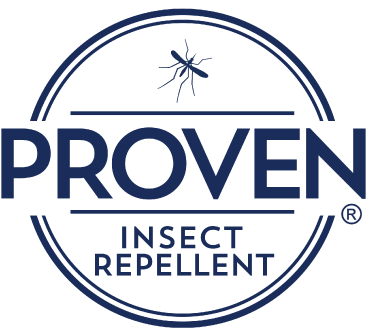The best-insect repellent for toddlers!
As you’re drifting down the insect repellent aisle looking for a product that will safely protect your toddler from irritating bug bites– or worse – serious mosquito-borne or tick-borne illnesses, you see: DEET. DEET-free! All-natural! Citronella! Spray. Balm. Wipes. Fans.
Agh! Help!
So many options to weigh. You just want an effective and safe insect repellent for your toddler, so he can enjoy being a kid outside – and you don’t have to worry about her safety. Many health-conscious parents worry about what ingredients are in the insect repellent products that they are putting on their children’s skin. Which means you must weigh the risk of insect-borne illnesses against smothering toxic chemicals on your toddler. With all these choices, what is the best insect repellent for your toddler?
Let’s cut to the chase.
The best insect repellent for toddlers is a lotion product containing a 20% concentration of the active ingredient Picaridin, such as PROVEN Family Care lotion.
Here’s why.
Picarid
The active ingredient Picaridin is not toxic and is more effective than the alternatives for the longest period of time. Picaridin effectively repels mosquitoes and ticks – the two most dangerous disease-carrying bugs – as well as irritating flies, chiggers, gnats, fleas and other biting insects. 20% Picardin products can be effective for 12-14 hours meaning you only need to apply to your toddler once a day. Any toddler parent will agree that is a plus.
The World Health Organization (WHO) recommends Picaridin as a top repellent for protecting against mosquito species that spread Malaria, Zika, Dengue Fever and West Nile. The active ingredient Picaridin has been widely used in Australia and Europe for the last 20 years. But is a relatively new active ingredient in the US with limited products available. Picaridin is recommended by the CDC, WHO and EPA as an effective insect repellent for repelling mosquitoes, ticks, flies, gnats, chigger and many other insects. It is also safe for pregnant or breast-feeding women and babies 2 months of age or older.
Favorite Picaridin product
Our favorite Picaridin product is PROVEN Family Care Lotion because it is non-toxic AND is SO effective against all the bugs we worry about – mosquitoes ticks, black flies, chiggers and gnats, and more.
PROVEN Family Care lotion is effective for 14 hours and is the easiest form to apply correctly for proper coverage, especially on children. The lotion is the most effective product on the market, lasting 14 hours. Even better is that by using a lotion on your toddler, you eliminate the inhalation risk of using a spray. Particularly compared to toxic repellents using an aerosol sprayer. Aerosols also require dangerous dispersant chemicals to make the product spray. We love that PROVEN Family Care lotion is not greasy or oily, nourishes the skin, and has a sweet baby scent – not the sticky, icky smelling insect repellents we are used to. PROVEN also comes in an odorless version if your toddler is sensitive to smells. It’s made of over 60% deionized water and Picaridin does not absorb into the skin making it a safer choice for children.
Other active ingredients
Here are some other active ingredients you may see in the insect repellent aisle and what to know about them: DEET, Oil of Lemon Eucalyptus, Citronella, Permethrin
DEET
Effective in repelling mosquitoes, but not as effective for flies and ticks. Toxic with potential adverse side effects, including irritation, rashes, swelling and association with seizures. Harmful to gear. Will melt plastics, breathable fabric and paint.
DEET is a chemical developed by the US army and is the most widely used active ingredient in the US. It is known for effectively repelling mosquitoes and other biting insects. Although studies are showing that DEET is not as effective on mosquitoes that have previously been exposed to the chemical1.
The American Association of Pediatrics says DEET should not be applied more than one time per day on children and the lowest concentration of DEET (5%) should be used. However, lower concentrations of DEET are less effective at preventing bites. Studies show that products with higher amounts of DEET protect people longer. For example, products with amounts around 10% may repel pests for about 2 hours, while products with amounts of about 24% last an average of 5 hours. But studies also show that products with amounts of DEET greater than 30% don’t offer any extra protection.
DEET Toxicity
DEET is toxic if swallowed so the EPA recommends that DEET products are not applied near a child’s mouth, eyes or to their hands, and treated skin should be washed after use. It can cause adverse reactions, such as irritation, rashes, numb or burning lips, headaches, dizziness, nausea, difficulty concentrating, swelling and seizures, in children. When applied to skin, a percentage of DEET is absorbed into the bloodstream and the toxicity of DEET increases when combined with other ingredients commonly found in bug repellents and aerosols. Europe, which is typically more progressive in limiting toxins in consumer products, is considering a ban on DEET products with concentrations of 50% or greater.
Additionally, products containing both DEET and sunscreen should not be used because sunscreen needs to be reapplied more than insect repellent. Reapplying when the sunscreen component is necessary would result in too much DEET being applied to your child.
DEET is also harmful to gear and will melt plastics, breathable fabrics and damage paint so be sure to keep it away from strollers, toys, clothing and certainly anything your toddler will put in his mouth.
Oil of Lemon Eucalyptus
Not safe for use on children under 3 years old4
Oil of Lemon Eucalyptus comes from the leaves of a Lemon Eucalyptus tree. It has been shown to be an effective mosquito and tick repellent if applied to the skin, however it does not last as long as DEET or Picaridin. The CDC advises not to use Oil of Lemon Eucalyptus on children under 3 years old. If ingested, Oil of Lemon Eucalyptus can cause seizures and death. Oil of Lemon Eucalyptus should not be confused with Lemon Eucalyptus essential oil which is not an effective repellent.
Citronella oil and other essential oils
Several essential oils, including citronella, geranium oil, cedar oil and lemongrass among others, have been shown to repel mosquitoes. But are not effective enough to safely protect from mosquito and tick-borne diseases.
Essential oils are natural products which are often less toxic than chemical repellents when used according to instructions. However some people can be very sensitive to essential oils, causing burn-like skin rashes. Efficacy is difficult to prove, and essential oil-based repellents are not recommended by the EPA or CDC as effective enough to safely repel disease-carrying bugs. Essential oils repellents typically come in spray form or infused in wristbands. The essential-oil infused wristbands do repel mosquitoes and are generally a safe option for your toddler as long as he will not put the wristband in his mouth. This application is best for light recreational use at a park or backyard and is not an effective repellent for protecting against disease-carrying mosquitoes or ticks in deep woods or areas of greater insect concentration.
Permethrin
Only approved for application to clothing and synthetic materials. Never to be applied to skin of a toddler or adult.
Permethrin is a highly effective insecticide and repellent; however, it is not safe to apply directly to skin and is highly toxic. The Permethrin-treated clothing repels and kills ticks, chiggers, mosquitoes, and other biting insects. Clothing and other items must be treated 24–48 hours in advance of travel to allow them to dry. As with all pesticides, follow the label instructions when using permethrin clothing treatments.
Here are some safety tips to consider when using insect repellents on toddlers.
- Children should not handle repellents. Instead, adults should apply repellents to their own hands first, and then gently spread on the child’s exposed skin. Do not apply repellents to eyes or mouth and apply sparingly around ears. Avoid applying directly to children’s hands. After returning indoors, wash your child’s treated skin and clothing with soap and water or give the child a bath
- Apply repellents only to exposed skin or clothing, as directed on the product label. Do not apply repellents under clothing.
- Never use repellents over cuts, wounds, or irritated skin.
- Wash hands after application to avoid accidental exposure to eyes or ingestion.
- Use just enough repellent to cover exposed skin or clothing. Heavy application and saturation are generally unnecessary for effectiveness. If biting insects do not respond to a thin film of repellent, apply a bit more.
- For children under 2 months of age, do not use insect repellents. Instead, use a mosquito net over a stroller or infant carrier.
Conclusion – best insect repellent for toddlers
So next time you find yourself among an overwhelming assortment of insect repellent choices, save yourself some time and peace of mind – grab a Picaridin-based product like PROVEN Family Care lotion (www.provenrepellent.com) and get outside!
Sources
- Nina Stanczyk, John Brookfield, Linda Field, James Logan. Aedes aegypti Mosquitoes Exhibit Decreased Repellency by DEET following Previous Exposure. PLOS ONE. Doi:10.1371/journal.pone.0054438
- http://www.aappublications.org/content/34/6/16.2
- https://healthychildren.org/English/safety-prevention/at-play/Pages/Insect-Repellents.aspx
- https://www.cdc.gov/westnile/prevention/index.html


Recent Comments